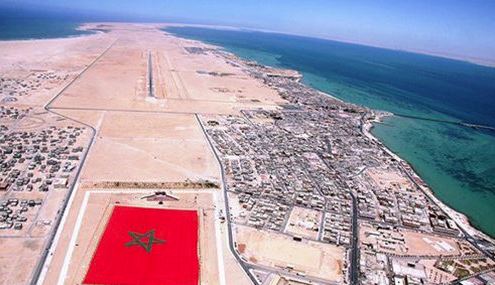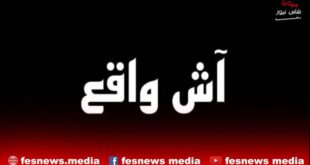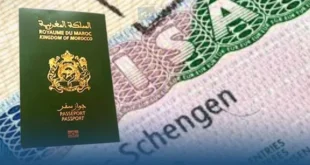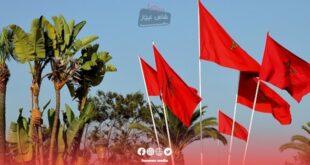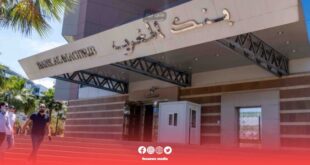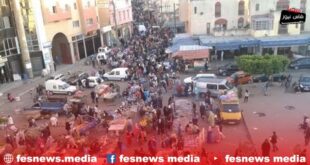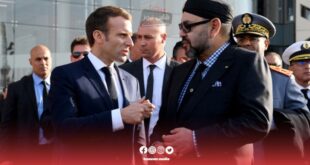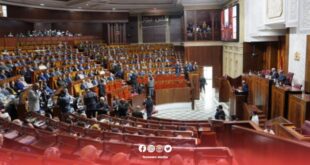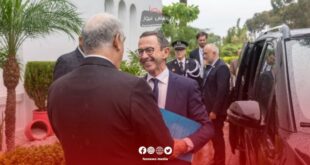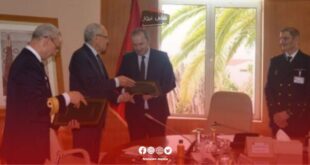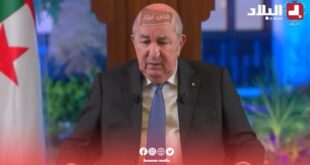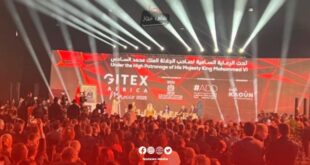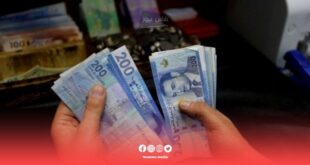Op-Ed – His Majesty King Mohammed VI paved the way for his return to the African Union by visiting several member states, accompanied by Moroccan businessmen and investors in order to capitalize on the opportunities offered by Africa. The royal visits culminated in several bilateral partnership and cooperation agreements that take into account the best interest of both parties in accordance with the principle of win/win. These agreements dealt with infrastructure, investment projects, economy, trade, exchange of expertise and other areas.
When Morocco returned to the AU, its goal was not limited to regaining its seat in the African institution from which it had withdrawn in 1984 in protest against the acceptance of the membership of the fictitious Sahrawi Arab Republic in the Organization of African Unity, founded in 1963 (since 2002 it has been called the African Union); it returned with a strategic vision and promising projects, with the slogan “For a prosperous Africa.” The slogan was “For a prosperous Africa.” However, prosperity requires more than just a bilateral partnership and cooperation. However, prosperity does not only require money (Algeria, for example, is rich, but its people live in poverty); it requires a visionary and insightful vision that sees in the continent’s troubles opportunities for advancement if Africans rely on themselves and cooperate with each other to exploit their countries’ natural resources and human potential to end dependence on foreigners; especially since Africa has real opportunities for investment. It is enough to see that major countries are flocking to Africa and competing to invest in its strategic sectors.
The Moroccan state, under the leadership of King Mohammed VI, does not make empty words or unrealizable promises, as some do, and does not propose fictitious projects or embark on the implementation of any project only after studying the feasibility, determining the cost, and thinking about sources of financing. The Moroccan state does not gamble with its image, weight and prestige; it works to preserve and protect it, not with loose talk and empty slogans, but with firm and sincere positions that guarantee the trust of partners. Trust is not just a word; it is a human and moral value that is measured by the extent to which commitments are honored and pledges are implemented.
Thanks to the trust that Morocco enjoys on the continent, Moroccan economic institutions are spreading to African countries, contributing to building their economies and helping them break free from the grip of the former colonial powers that have been draining their resources. Since the Moroccan state is not only thinking about the development of Morocco, but also about the development of Africa, it is working to present projects with a developmental and economic dimension, benefiting a number of African countries. This includes the Nigeria-Morocco gas pipeline project, which will contribute to the development of more than ten countries through which the gas pipeline will pass. In addition to this promising project, the Moroccan monarch proposed another mega project involving more than twenty African countries located on the Atlantic front. In response to the royal vision, 23 African countries met in Rabat to chart a course to maximize the use of the Atlantic Ocean for the benefit of the continent.
The royal vision aims to make the Atlantic front of the Moroccan Sahara a gateway to the African-Atlantic countries, with the inclusion of the Sahelian countries (Niger, Mali, Burkina Faso and Chad), which have no access to the ocean. In this context, a coordination meeting was held in Marrakech between the foreign ministers of the Sahel countries and Moroccan Foreign Minister Nasser Bourita to discuss ways to implement the contents of the Royal Speech on the 48th anniversary of the Green March. This coordination meeting was a bullet in the heart of Algeria and France, which put an end to their ambitions in the Sahel countries. During their meeting with the press, the foreign ministers of these countries expressed their appreciation for the generous royal initiative and announced their involvement in it with determination and confidence.
An objective observer can record with certainty, based on accurate indicators and data, that Morocco’s development train has been moving steadily in all directions, and its stations are numerous and varied. After devoting more than two decades to infrastructure and the development of provinces bordering the Mediterranean Sea, as well as the development of the southern provinces and some cities in the center, King Mohammed VI turned his sights towards the African continent, where he regained his seat in its institutional structures, as mentioned above, before announcing major investment projects for the continent. Two strategic projects were mentioned above: The Nigeria-Morocco gas pipeline and the project for African countries bordering the Atlantic Ocean with the inclusion of Sahelian countries.
The royal vision makes Dakhla a focal point and a springboard to Atlantic Africa. To this end, the construction of a large port (Dakhla Atlantic Port), designed to be scalable and expandable, has been initiated. This facility is expected to be divided into three ports: A commercial port that can attract the international shipping industry, a port for coastal and high seas fishing, and a port for shipbuilding. There is no doubt that this port, given its location and importance, will be not only a transit point, but also a meeting point between Atlantic countries from different continents. The Atlantic port of Dakhla would be a showcase for economic integration and continental and international radiation.
In short, most African leaders seem to have realized Morocco’s intention and understood that it does not seek to exploit Africa’s potential for its own benefit; rather, it aims to accompany it in development projects that benefit all parties. In addition to investment projects on the continent, African countries that suffer from a shortage of qualified sports stadiums find Morocco’s help to play their official matches in Moroccan stadiums.
It should be noted that Morocco’s regional, regional and international status has allowed it to accumulate diplomatic victories, as Moroccan diplomacy has succeeded in neutralizing the diplomacy of checks and donations pursued by Algeria to undermine Morocco’s territorial integrity. The tragic situation that Algeria is currently experiencing with the scarcity of basic foodstuffs and the scarcity of drinking water is proof of the recklessness and absurdity in management and administration. I pity the uninformed Algerians who see that Morocco, which has neither oil nor gas, is coveted by major countries, not only as a gateway to Africa and a bridge to Europe, but also as a reliable partner and regional leader. This status was not gained by talk, bidding and claiming power, but by hard work and sincerity in word and deed.
By : Mohamed Enfi
Source : Fes News Media
 فاس نيوز ميديا جريدة الكترونية جهوية تعنى بشؤون و أخبار جهة فاس مكناس – متجددة على مدار الساعة
فاس نيوز ميديا جريدة الكترونية جهوية تعنى بشؤون و أخبار جهة فاس مكناس – متجددة على مدار الساعة

